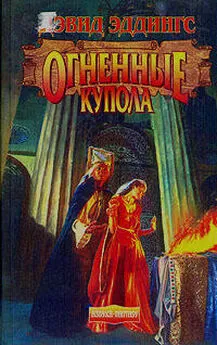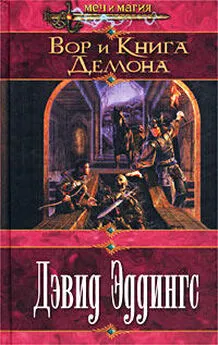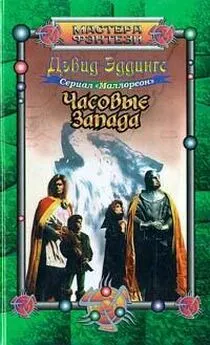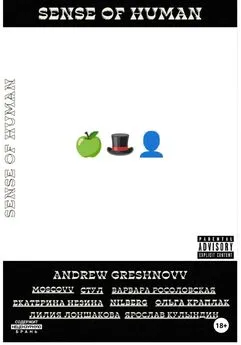David Steindl-Rast - Words of Common Sense
- Название:Words of Common Sense
- Автор:
- Жанр:
- Издательство:Templeton Foundation Press
- Год:2002
- Город:Philadelphia London
- ISBN:1-932031-43-X
- Рейтинг:
- Избранное:Добавить в избранное
-
Отзывы:
-
Ваша оценка:
David Steindl-Rast - Words of Common Sense краткое содержание
Words of Common Sense - читать онлайн бесплатно полную версию (весь текст целиком)
Интервал:
Закладка:
The gazelle jumps, and should her fawn crawl?
— FULFULDE
Flies’ eggs hatch flies.
— CHINESE
A crab doesn’t hatch a bird.
— GA,GOLD COAST
What can you expect from a pig but a grunt?
— IRISH
According to John’s gospel Jesus says: “I have come that they may have life, life in abundance” (10:10). Life creates ever new forms. Old structures support new life and growth, but then they harden and must be replaced. Every living organism and every ecosystem continually renews itself. A common sense animates and guides the whole. New growth knows when to spring up; old structures know when to let go. When the raspberries are ripe, they drop from the briars; when the milkweed seeds are ready, the pods split open to let the wind carry the little suns away. When the coyote mother becomes aware that her pups can now hunt for themselves, she wanders off and leaves the territory to the young. Only in human society does fearful clinging to power block common sense. Taoist sages were keenly aware of this. The more they attuned themselves to nature, the more they despised and ridiculed their society’s aberrations from Common Sense. Jesus contrasts these aberrations of a death-bound world with a world alive by God’s life-breath — the Holy Spirit.
If “Holy Spirit” were not a time-honored term, we would never call the experiential reality to which it refers by this name. When we speak of a spirit today, what first comes to mind is a ghost. And “holy”—as in “Holy Moly!”—no longer implies a sense of reverence and awe. If we had to come up with an expression for the harmony-creating life force that connects all with all and with the very source of life, “Common Sense” would be most appropriate and readily available. Each time we see “Holy Spirit” printed on a page or hear it said aloud, we might replace it with “Common Sense” to get the full impact.
Using the imagery of his Jewish tradition, Jesus calls his vision of a world in which harmony reigns “the kingdom of God.” In our age, kings belong to the realm of fairy tales. Obedience to a supreme ruler is no longer a value that inspires us.A pyramid of authority with king and god — or even God— on top is a defunct model; today’s emerging model is closer to what Gary Snyder calls “Earth Household.” Here, authority works from within: the family spirit of Common Sense makes all work in harmony with all.The “kingdom” that Jesus envisages is a “God Household.” He sees God not so much as our
King, but as our Father; and the motherly Spirit (originally a feminine term) is an all-pervading sense of family, our Common Sense. In the God Household, the love of power yields to the power of love.
“The smaller the lizard, the greater its ambition to become a crocodile,” they say in Ethiopia. It’s hard to assess if this is true among reptiles, but it is certainly true among humans. The degree of power one wields determines one’s place in the authority pyramid of a worldly kingdom. But the kingdom of Heaven has the authority structure of a household. Here, the mark of authority is service: “Let the greatest among you become as the least, and the leader as the one who serves” (Luke 22:26). In the God Household, those in authority must use their power to empower all who are under their authority.
You can do without friends, but not without neighbors.
— EGYPTIAN
No one is so rich as to need no neighbor.
— HUNGARIAN
We are mice of the same hole: If we don’t meet going in, we meet coming out.
— HAUSA,EAST
The Good News of Common Sense
The message of Jesus implies that inner rather than outer authority ought to guide us: The time has come; a common-sense world inspired by the power of love is at hand; let this turn your old outlook on life upside down; put your whole heart into living in this good newness! (See Mark 1:15.)
We can group the gospel parables quite naturally into five sets according to the way they relate to this central message.
1. Parables signaling the end of an unjust and exploitative world order.
2. Parables speaking of new life stirring, as in buds bursting, dough rising, and seed sprouting. 3. Parables alerting us to expect the unexpected.
4. Parables challenging us to seize the moment, to act as if everything depended entirely on us yet to trust in God and be patient.
5. Parables about a new order — an order of love — in answer to the perennial question that Piet Hein formulates as: “I want to know what this whole show is all about, before it’s out.” Wouldn’t we all want to know? Jesus offers this common-sense answer: It’s all about celebration; it all leads up to a great wedding feast.
1. The old order is collapsing. As we set out to examine the parables in these different sets, let’s start with the ones that tell us that we need not take the world as we find it or for what it pretends to be — it is not the real thing. It is a world out of tune with common sense. Jesus invites us to judge for ourselves. “A good tree brings forth good fruit.” Right? Of course! “But a corrupt tree brings forth evil fruit” (Matthew 7:17), isn’t that so? Of course it is. Well then, look at oppression, violence, exploitation….Do you think the tree that bears such fruit is basically sound? Do you still think our society is basically healthy? What good do you expect from it? “What does one gather from brambles? A cluster of grapes? Or from thistles? Figs?” (Matthew 7:16). Unlikely as it is, most people expect that the thorns and thistles of a political establishment built on force will yield good fruit, if only we wait long enough. As to the religious establishment,
“Can the blind lead the blind?” (Luke 6:39). If life were whitewater rafting, would you entrust yourself to a guide with no better qualifications than having studied books on the matter? To whom are you entrusting yourself in your “exploration into God”? Is the teaching you receive salted with the salt of common sense? “Salt is good, but when it loses its saltiness, with what will you season it?”(Mark 9:50) remains a question worth pondering.
The assessment Jesus makes of his own time makes me wonder how he would assess ours. The state of the world remains bad news.We may not yet know what to do about it, but common sense can tell us at least that a world order based on power and exploitation is not sustainable. “Even if you can’t lay eggs, you can smell when one is rotten,” a proverb from Serbia says.
The heaviest ear of corn bows its head the lowest.
— IRISH
Gold sinks deeper than dross.
— CHINESE
Low-lying land drinks water from all around.
— EGYPTIAN
“Can’t you tell that there is a carcass nearby, when you see carrion birds gathering overhead?” (Matthew 24:28). “Something is rotten in the state of Denmark.” Are you pretending not to be aware of it? “When you see a cloud rising in the west, you say at once,‘A shower is coming’;and so it happens.And when you see the south wind blowing, you say, ‘There will be scorching heat’;and it happens.You play-actors! You know how to interpret the appearance of earth and sky, but why do you not know how to interpret the present time?” (Luke 12:54–56). The answer to this question is already implied by the phrase “You play-actors!”—usually left in its Greek form, “hypocrites!” We must choose: either act the part that a sick society assigns to us, or stand up for common sense.
2. A new life is stirring. When we grow alert to the signs of the times, we see positive signs, too: a new season is stirring. “When cocoa ripe, him must burst,” a Jamaican proverb says. In Palestine, it’s not the cocoa bean but the bud on the fig tree that bursts open. “Look at the fig tree and all the trees; as soon as they bud forth, you see for yourselves and know that summer is near” (Luke 21:29–30).“Can’t you see for yourselves?”Jesus asks.The bad news is inseparable from the Good News. “A woman in labor has pain, for her hour has come, but when she has born the child, she no longer remembers her distress for joy” (John 16:21). Can’t you see this happening all around you?
Common sense knows: What is truly new does not make its entrance with pomp and fanfare; it is small, quiet, and hidden. Still, it has the power to transform, “like leaven which a woman took and hid in three measures of meal, till it was all leavened” (Luke 13:21). Three measures of flour make a huge quantity of dough, yet the leaven is completely hidden in it. Seed, too, is hidden in the ground—“like a grain of mustard seed, which, when sown upon the ground, is the smallest of all seeds on earth; yet, when it is sown it grows up and becomes the greatest of all shrubs” (Mark 4:31–32).
New growth is vulnerable: much seed goes to waste in the sowing. “A sower went out to sow his seed; and as he sowed, some fell along the path, and was trodden under foot, and the birds of the air devoured it. And some fell on the rock; and as it grew up, it withered away, because it had no moisture. And some fell among thorns; and the thorns grew with it and choked it” (Luke 8:5–8). And yet, “Some fell into good soil and grew, and yielded a hundredfold”—amply making up for all the losses. Nor should we pull up the weeds that seem to choke the wheat, “lest in gathering the weeds you root up the wheat along with them. Let both grow together until the harvest” (Matthew 13:29–30). Why do we so quickly grow impatient? The seed is growing. The bread is rising. All we need is patience.
Our common sense, if we’d but use it, is in tune with the patience of nature, “as if a man should scatter seed upon the ground, and should sleep and rise night and day, and the seed should sprout and grow, he knows not how. The earth produces of itself, first the blade, then the ear, then the full grain in the ear. But when the grain is ripe, at once he puts in the sickle, because the harvest has come” (Mark 4:26–29). “Indolence is often taken for patience,” says a French proverb.
But the truly patient are anything but indolent: they know
A calf is not afraid of its mother’s horns.
— GALLA
The lion growls at its cub but won’t eat it.
— ILA
when to act. Wide-awake to the right moment for the harvest, the reaper in Jesus’ parable puts in the sickle “at once.” Common sense gives us both patience to wait and alertness to strike while the iron is hot.
3. Now is the moment. Another set of parables gives us flash images to sharpen our sense for the decisive moment. Someone’s sudden death, a lightning flash, a burglary: challenges to expect the unexpected. “The land of a rich man brought forth plentifully; and he thought to himself, ‘What shall I do, for I have nowhere to store my crops?’ And he said, ‘I will do this: I will pull down my barns and build larger ones; and there I will store all my grain and my goods. And I will say to my soul, Soul, you have ample goods laid up for many years; take your ease, eat, drink, enjoy yourself.’” The broad flow of this narrative makes the ending sound all the more sudden: “Fool! This very night your life will be demanded back from you” (Luke 12:16–20). “Death keeps no calendar,” as the English proverb says. Neither does a burglar make an appointment. “If the householder had known at what hour the thief was coming” (Luke 12:39), he would have watched. Watch out! Can you foretell the moment when lightning will strike? Or, in the colorful language of a proverb from the southern United States, “Mule don’t kick according to no rule.”
In a time of momentous change, we must be awake and alert.We must watch out for sudden opportunity and, when it pops up, go after it.We must be ready at a moment’s notice to let go of the old and invest everything we have in the new order.
Читать дальшеИнтервал:
Закладка:









